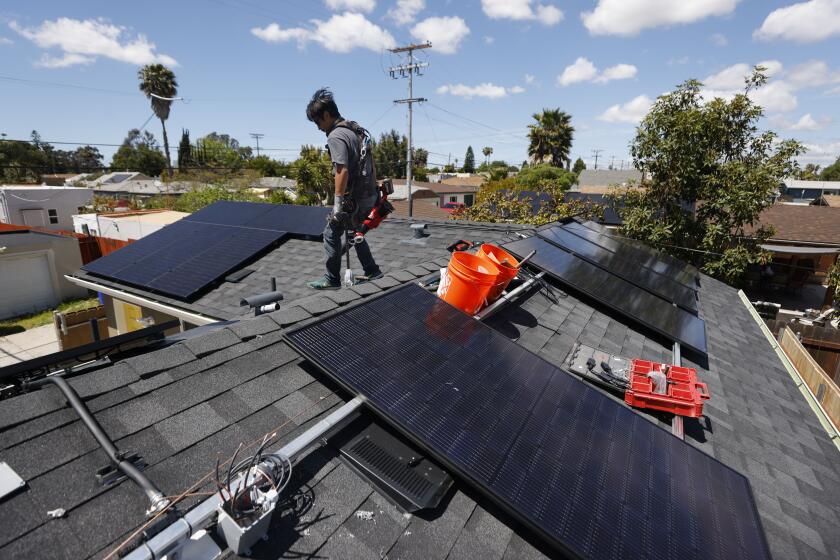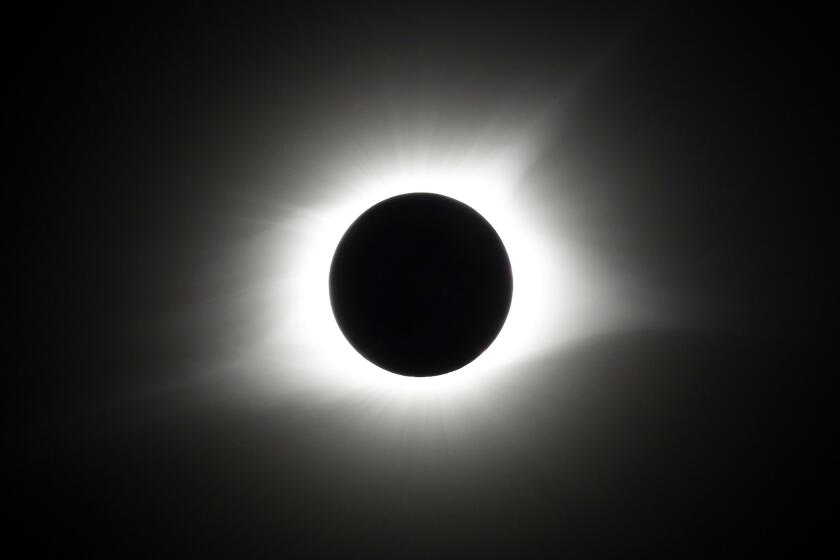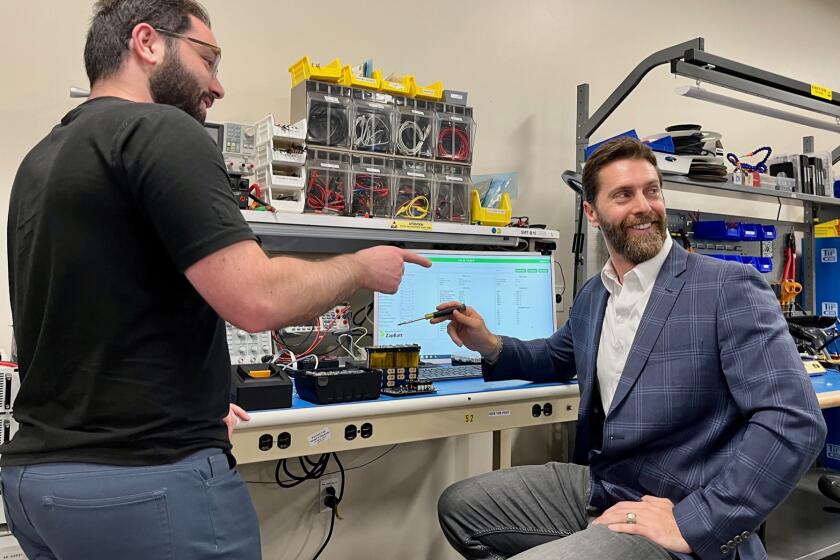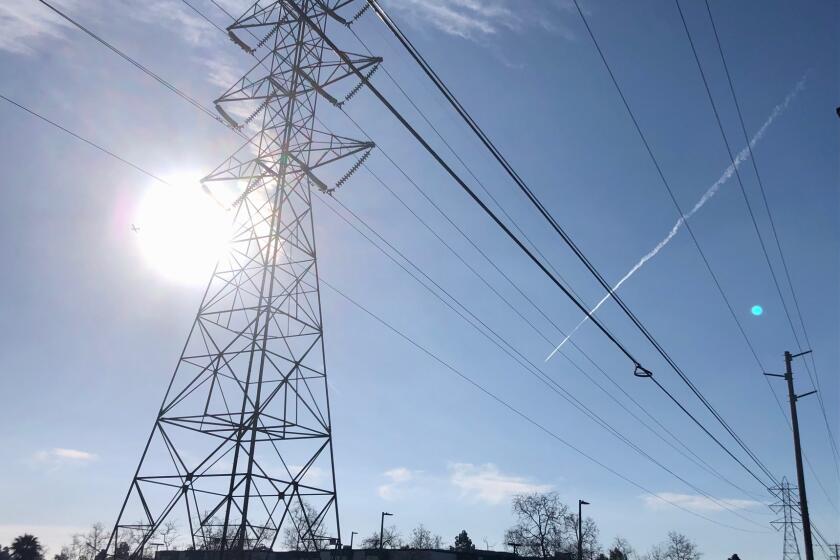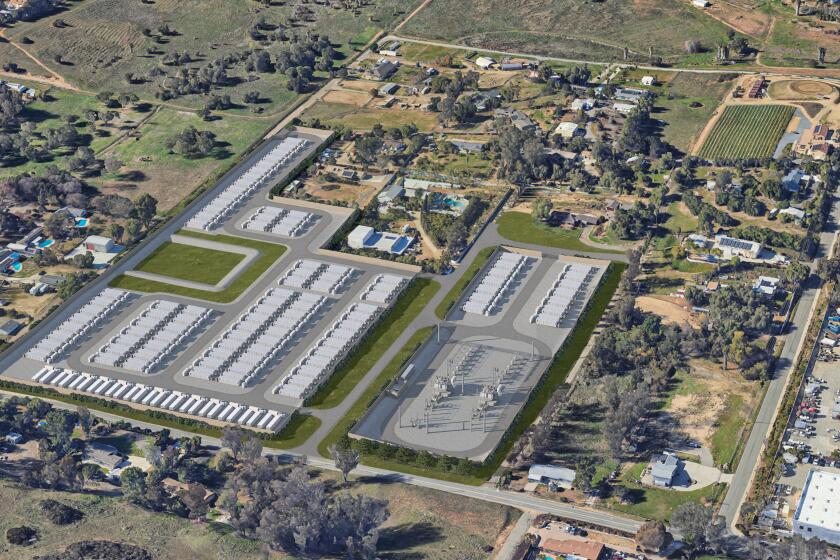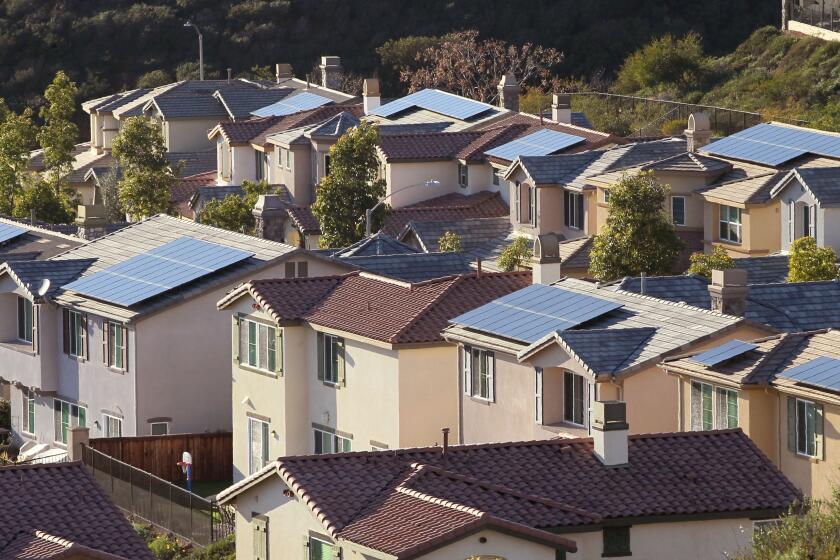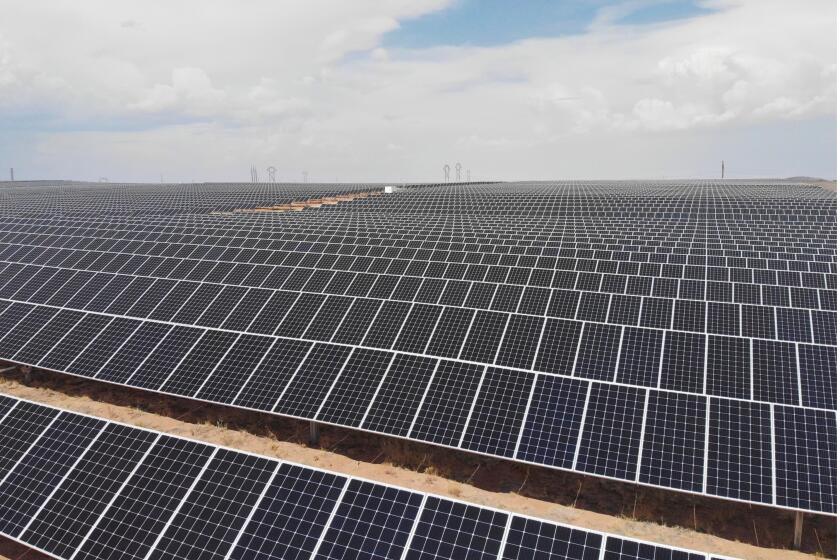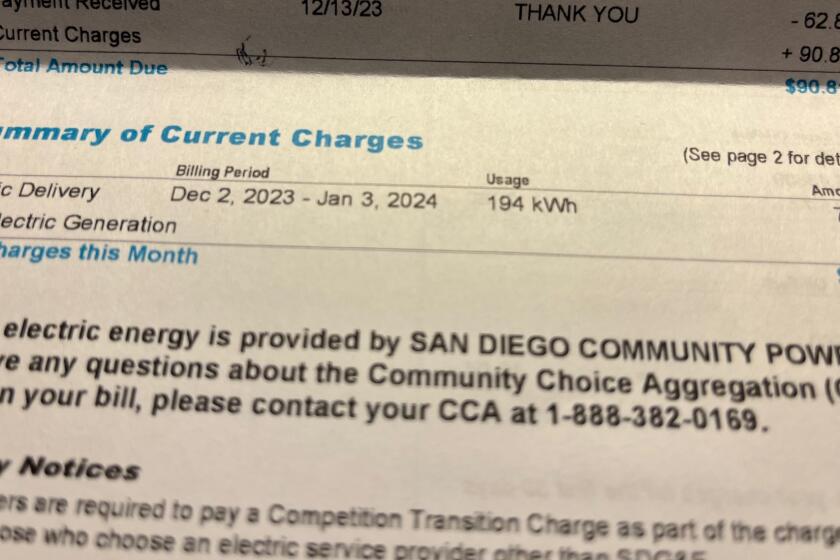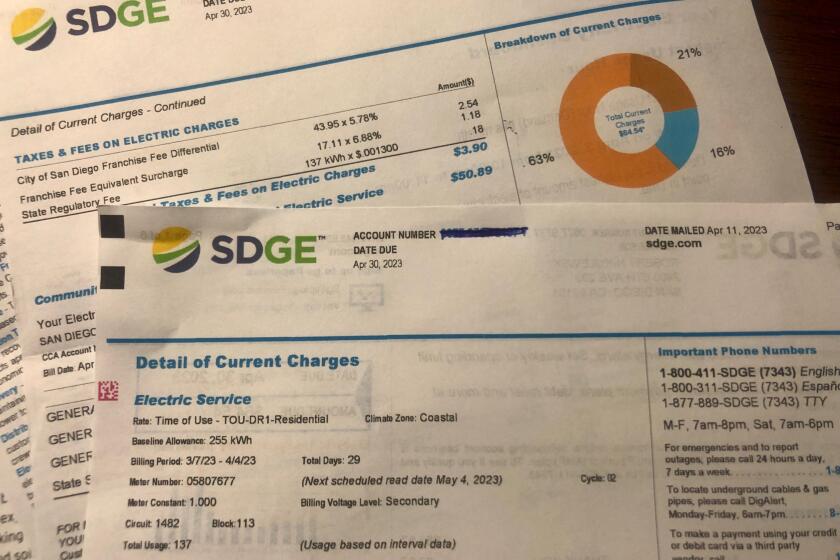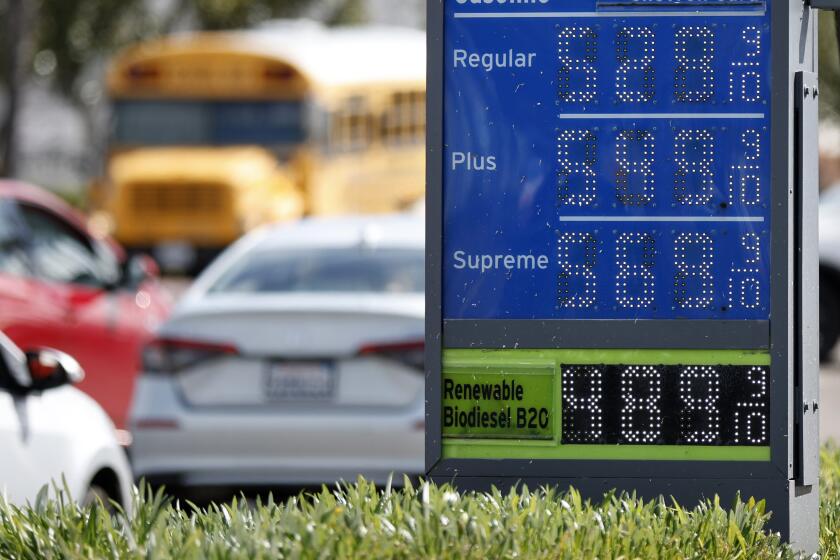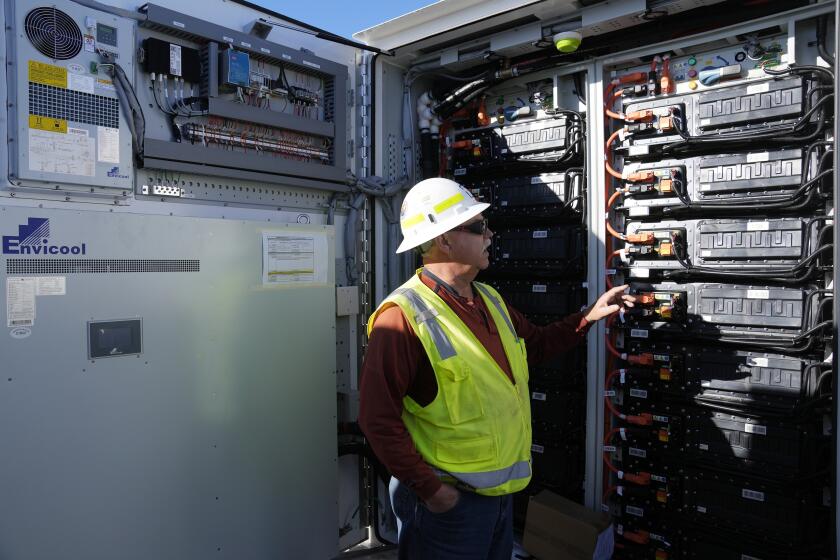Levin to introduce bill giving San Onofre nuclear waste ‘top priority’ from feds
A freshman member of Congress announced Tuesday that he will introduce legislation aimed at making sure the 3.55 million pounds of nuclear waste at the San Onofre Nuclear Generating Station, also known as SONGS, “receives top priority” when the federal government finally finds a place — or places — to deposit the roughly 80,000 metric tons of spent fuel piling up at reactor sites across the country.
For the record:
9:00 a.m. April 17, 2019This story has been corrected to show that Rep. John Shimkus is from Illinois.
“Ultimately, the safest thing for our region is to move the nuclear waste at SONGS to a site that is not surrounded by millions of people and threatened by earthquakes and sea level rise,” said Rep. Mike Levin, D-San Juan Capistrano.
Though it has never been set in stone, an “oldest fuel first” standard has been accepted by some in the U.S. nuclear industry.
In essence, the standard means priority will be given to spent fuel that was produced earlier, rather than later, by nuclear plants generating electricity for the nation over the decades.
But if Levin’s bill becomes law, the old standard would be replaced and new criteria would be established to determine which sites would move to the front of the queue.
Levin made the announcement after completing a tour of SONGS with another House of Representatives freshman, Rep. Harley Rouda, D-Laguna Beach, who is also chairman of the House Subcommittee on Environment. Officials from Southern California Edison, the operator of SONGS, hosted the tour.
“With (Levin’s) legislation, we will begin the process of doing what we should have done decades ago,” Rouda told reporters as he stood with Levin, overlooking two dry storage facilities at SONGS that hold canisters filled with spent fuel assemblies.
In what will be called the Spent Fuel Prioritization Bill, Levin’s legislation would give priority to waste:
- from decommissioned plants or those in the process of being decommissioned -- in other words, plants that no longer generate electricity
- located near dense population centers, and
- where there is an earthquake hazard
SONGS would qualify under all three of the criteria. It has not produced electricity since 2012 and is being decommissioned; some 8.4 million people live in a 50-mile radius of the plant in a region with a history of seismic activity.
When asked if SONGS would be at the top of the list under the parameters of his bill, Levin said, “I’m fairly certain that we’re the only site quite like it.”
Levin, who replaced longtime District 49 congressman Darrell Issa, R-Vista, said his legislation would supersede the “oldest first” principle.
“There are certain sites that are truly different,” he said. “We probably shouldn’t have had a nuclear power plant here in the first place but now that we do and we’re stuck with 1,600 (metric) tons of radioactive spent nuclear fuel, we better do everything we can to prioritize.”
Despite a polarized atmosphere on Capitol Hill, Levin and Rouda expressed optimism that the bill can make some headway.
“This is not a partisan issue,” said Rouda, who unseated longtime House Republican Dana Rohrbacher in California’s 48th Congressional District. “These sites are located in districts that are represented by Republicans and Democrats who have surrounding districts potentially affected by any negative outcomes that would occur.”
Under the Waste Policy Act, passed by Congress in 1982, the U.S. Department of Energy was given responsibility for the long-term storage of nuclear waste. But no site has been established.
Rep. John Shimkus, R-Illinois, has tried to resurrect the huge Yucca Mountain repository in southern Nevada but progress is slow and the politics poisonous, especially among members of the Nevada delegation in Washington.
Another option is “consolidated interim storage,” in which sites would be built in relatively isolated locations where multiple nuclear plants could send their waste. Establishing such sites is dependent on getting consent from local authorities, which supporters hope can avoid the opposition that has dogged Yucca Mountain.
A group called Interim Storage Partners wants to build an underground site in West Texas and has applied to the Nuclear Regulatory Commission for a license.
In southeastern New Mexico, a local group has formed to construct its own facility to accept spent fuel from various sites, including SONGS, by 2022. But there are plenty of political and regulatory hurdles to clear.
“Remember, our government tends to move slowly and often doesn’t move unless there’s a crisis to respond to,” Rouda said.
Levin said without the ability to to prioritize spent fuel, “we could be looking at the 2035 to 2050 time frame” to actually begin the process to move waste from SONGS. “If we were able to advance legislation like this, we could probably advance that timeline by a decade or more,” Levin said.
Edison officials said they supported Levin’s bill.
“We think action needs to be taken on the federal level to get some movement going on spent nuclear fuel,” said Edison spokesman John Dobken. “And an effort to prioritize fuel, based on its location, is very welcome.”
Last month, the Nuclear Regulatory Commission fined Edison $116,000 over an incident last August. As part of a transfer process moving waste from wet storage pools to a newly constructed dry storage facility, one canister filled with 37 fuel assemblies ended up lodged on a shield ring of a cavity enclosure at the plant, some 18 feet from the bottom of the vault, for about 45 minutes.
Edison critics have worried about scratches on the canisters when they are lowered into the vaults. Edison and the canisters’ designer, Holtec International, have downplayed them, describing them as “wear marks.”
In March, three canisters were inspected by video and robotic devices and the data sent to the NRC for analysis. Dobken said Tuesday five more canisters were inspected last week, with results also sent to the NRC. Dobken said there are no plans to inspect more canisters.
Fuel transfers at SONGS have not resumed since the incident involving the lodged canister last August. NRC officials say they will not approve resumption until an issue is resolved with Holtec regarding conflicting compliance standards dealing with scratches on the canisters.
Get U-T Business in your inbox on Mondays
Get ready for your week with the week’s top business stories from San Diego and California, in your inbox Monday mornings.
You may occasionally receive promotional content from the San Diego Union-Tribune.


